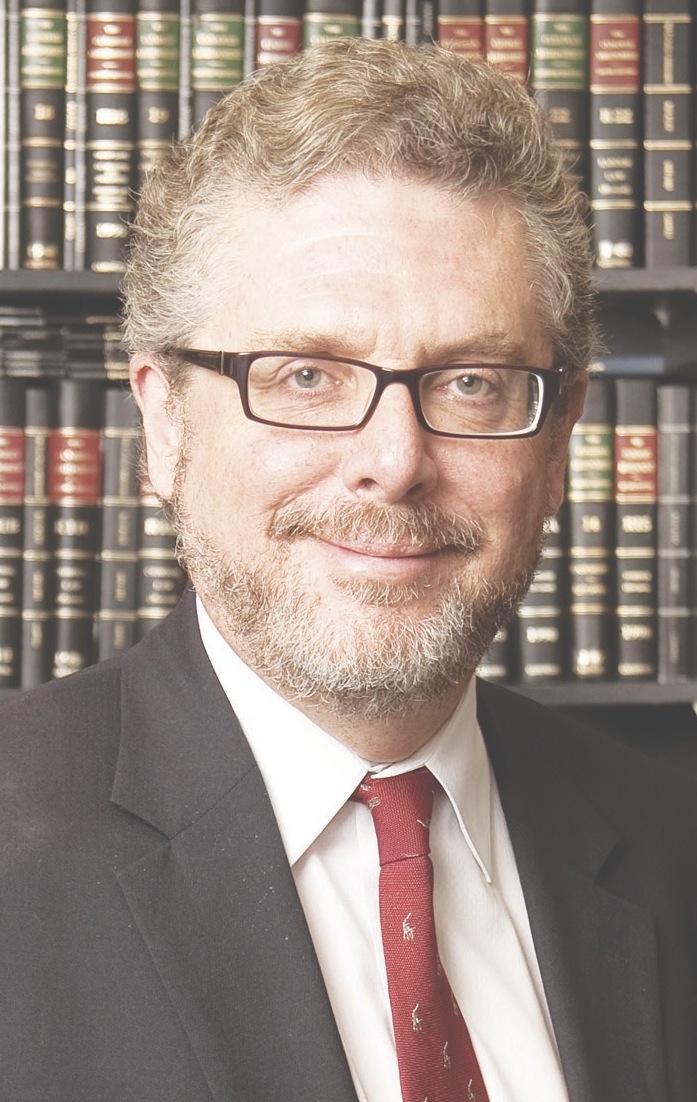Ontario’s justices of the peace have lost their bid to intervene in a misconduct hearing over concerns about the handling of allegations that one of their colleagues falsified expenses.

It’s the second recent misconduct hearing in which the Association of Justices of the Peace of Ontario has raised issues of fairness.
“Our real concern is just to make sure that the procedures are closely and carefully followed,” James Morton, counsel for the association, tells Law Times when asked about the latest attempt to intervene.
On Aug. 22, a hearing panel of the Justices of the Peace Review Council rejected the association’s application for intervener status at the hearing into allegations of misconduct against Justice of the Peace Santino Spadafora.
The three-member panel didn’t accept that the association, which represents most of Ontario’s 347 justices of the peace, could provide unique expertise that would be helpful to the case. The panel begins hearing evidence in November.
“If the application to intervene were granted, there is a risk of a perception on the part of the public that the association is attempting to influence the outcome of a hearing,” said Ontario Court Justice Esther Rosenberg, who chaired the panel set up to hear the case.
The association stresses it takes no position on Spadafora’s case. “We don’t have a dog in this fight,” Robert Karrass, another association lawyer, told the panel.
Spadafora faces accusations of making 600 inflated travel accommodation, mileage, and Highway 407 toll expense claims while on court business in the Niagara region.
The association sought intervener status at his hearing because of two issues: the underlying fairness of how financial policies apply across the bench and the practice in place when a justice of the peace faces a misconduct hearing after a criminal prosecution.
“There’s a concern that we have to be very sure in a situation such as this that the criminal accused’s rights are not in any way infringed and, in addition, that should criminal charges be withdrawn that they don’t have any overhang,” says Morton.
Spadafora, a Brampton, Ont., justice of the peace, was charged criminally with fraud over $5,000 and breach of trust with regards to the same expenses, but those charges were withdrawn in late 2012. As a result, he was reinstated and continues to sit on the bench.
The association was more successful in gaining intervener status in another current hearing after raising concerns about fairness. In that hearing, Justice of the Peace Errol Massiah is defending himself against allegations that he sexually harassed female courthouse staff in Whitby, Ont.
The review council had previously found Massiah guilty of misconduct in April 2012 over allegations of sexual harassment at another courthouse. It reprimanded and suspended him for 10 days.
In Massiah’s new hearing, the association argues the complaint was improperly laid because the review council’s own presenting counsel brought it forward.
Because presenting counsel is part of the review council, having that person file the complaint is essentially the same as the review council itself laying the complaint and investigating the case, the association argues.
“It is submitted that only written complaints from identified complainants made through the regular process are proper,” wrote Morton in his submissions.
Ernest Guiste, Massiah’s lawyer, raised similar concerns and alleged an abuse of process. “It is not presenting counsels’ role to investigate complaints,” Guiste argued at the Massiah hearing. “Their role is to be impartial. It calls into question the integrity of the process.”
When it comes to Spadafora’s hearing, Morton says it’s particularly important that the review council carefully follow procedures, especially when dealing with issues like expense claims.
“There is a certain informality sometimes that is apparent in the way such concerns are dealt with,” says Morton.
“Justices of the peace are judicial officers and when a serious allegation is made, it needs to be dealt with with all due seriousness.”
The association worries the hearing panel may decide on Spadafora’s expenses without knowing the bigger picture and that this could create a precedent that is not fully informed, says Morton.
There’s a danger of using ambiguities in the rules against other justices of the peace, he suggests.
At the hearing, presenting counsel Scott Fenton argued the association had failed to show it could make a useful contribution.
“There are no issues of public importance apart from the determination of the factual issues,” said Fenton.
Granting intervener status could derail the hearing with irrelevant issues, Fenton added.
Spadafora’s lawyer, Mark Sandler, took no issue with the request for standing. He said it would be “very much in issue” whether there was a policy in place precluding Spadafora from claiming the expenses he did.
“I can see how the association could contribute to the question as to the existing policy, how that existing policy was communicated, whether it was uniform across the province or applied uniformly across the province and the like,” said Sandler.
Sandler said Spadafora, when he testifies, “will undoubtedly reflect upon his perceived unfairness in the way in which the allegations were brought to his attention, his opportunity to respond to them, and how the matter has been dealt with.”
Rosenberg asked Karrass if what it really boiled down to was that the association had concerns about whether the hearing panel would appropriately decide the case.
“Absolutely not,” Karrass replied.
“What we want to make sure of is that when complaints are brought before you, they are brought properly.”
For background on the Massiah matter, see "
JP facing fresh sexual harassment allegations."

 It’s the second recent misconduct hearing in which the Association of Justices of the Peace of Ontario has raised issues of fairness.
It’s the second recent misconduct hearing in which the Association of Justices of the Peace of Ontario has raised issues of fairness.